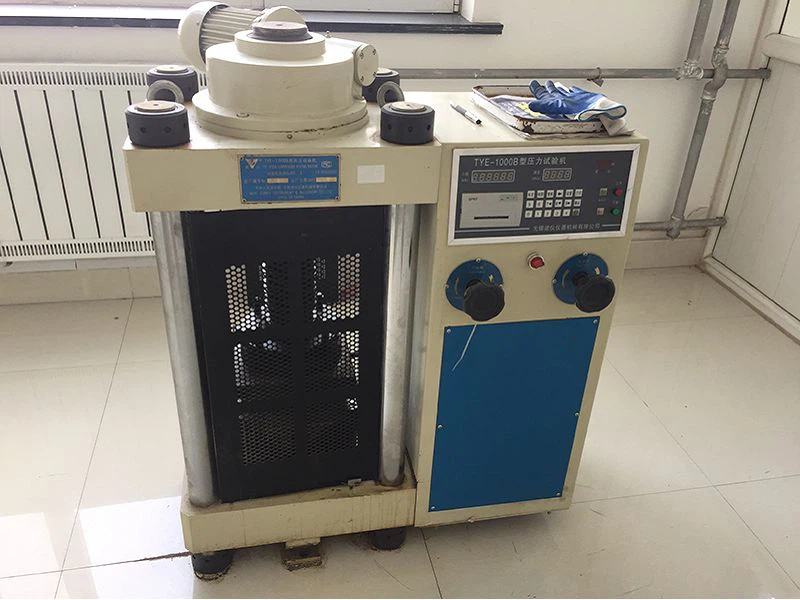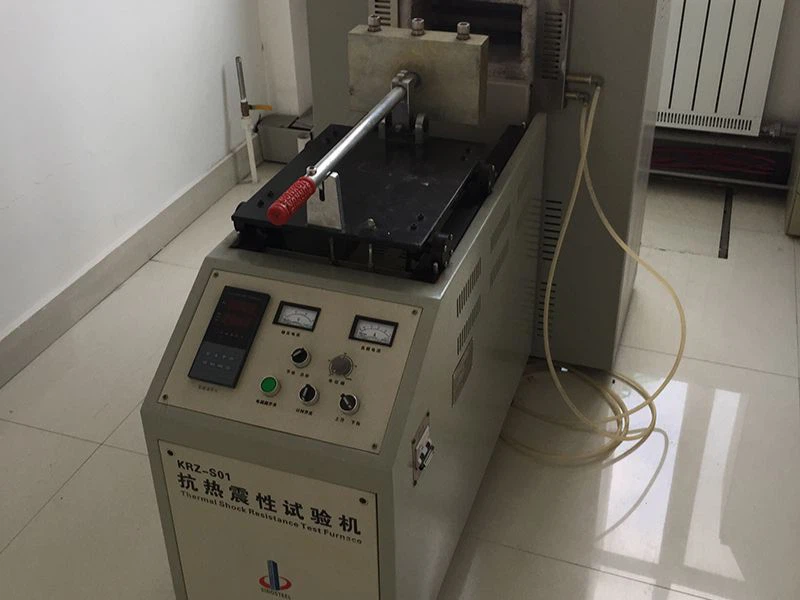Our company has all kinds of professional testing equipments

Cold crushing strength(CCS):
Refers to the ability of the product to resist external pressure at room temperature. If the refractory is not strong enough, its ability to withstand external mechanical stress is reduced, which will lead to fractures during use and masonry.
Modulus of rupture(MOR):
Indicates the ability of the product to resist bending. Place the sample on the support and load it at a certain rate until the center of the sample breaks. Then the flexural strength is calculated by the span of the bracket; the load and the cross-sectional area of the sample when it breaks.

Apparent porosity
It refers to the percentage of the volume of the open pores in the refractory product to the total volume of the product. For dense materials, the lower the pores, the better the density. At the same time, low-porosity bricks can also effectively inhibit the penetration of harmful gases during use.

Refractoriness under load (RUL)
Indicates the ultimate stress of the product against bending at a certain high temperature, usually set at 1000 °C; 1200 °C and 1400 °C. Place the sample on the support and load it at a certain rate until the center of the sample breaks. Then the flexural strength is calculated by the span of the bracket; the load and the cross-sectional area of the sample when it breaks.
Refers to the deformation of dense refractory materials as the temperature increases under a certain load. The highest test temperature is 1700 °C. The higher the loading temperature, the stronger the ability to withstand high temperatures.

Thermal shock resistance(TSR):
Refers to the tension caused by large fluctuations in temperature, which leads to cracks or fractures in the material, especially for relatively brittle materials. Refractory materials must have sufficient toughness to resist normal fluctuations in the kiln at high temperatures. If the toughness is not enough, the material will break or headshot.

